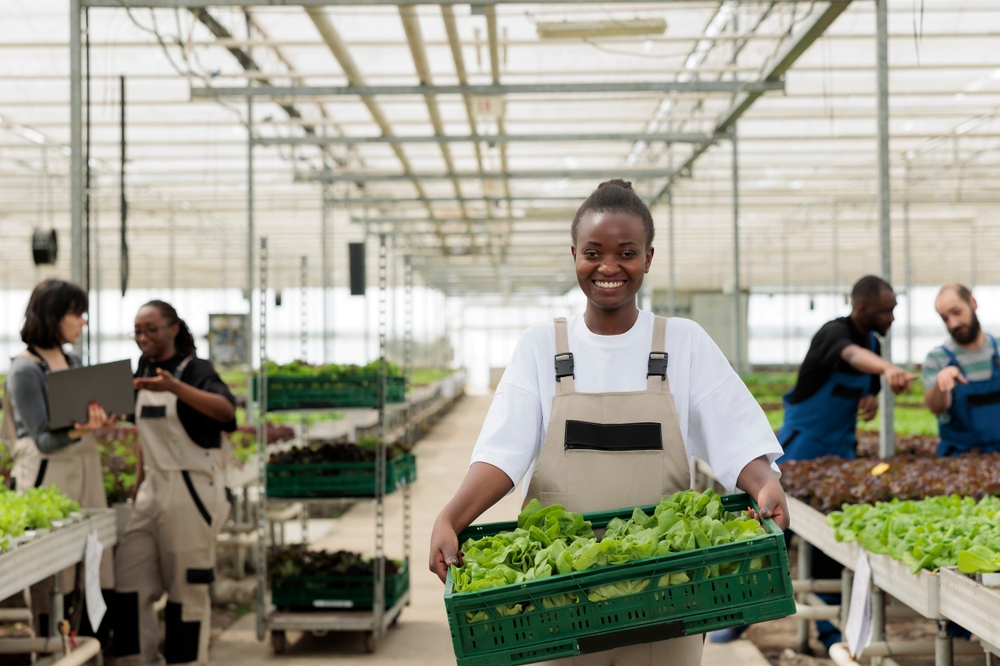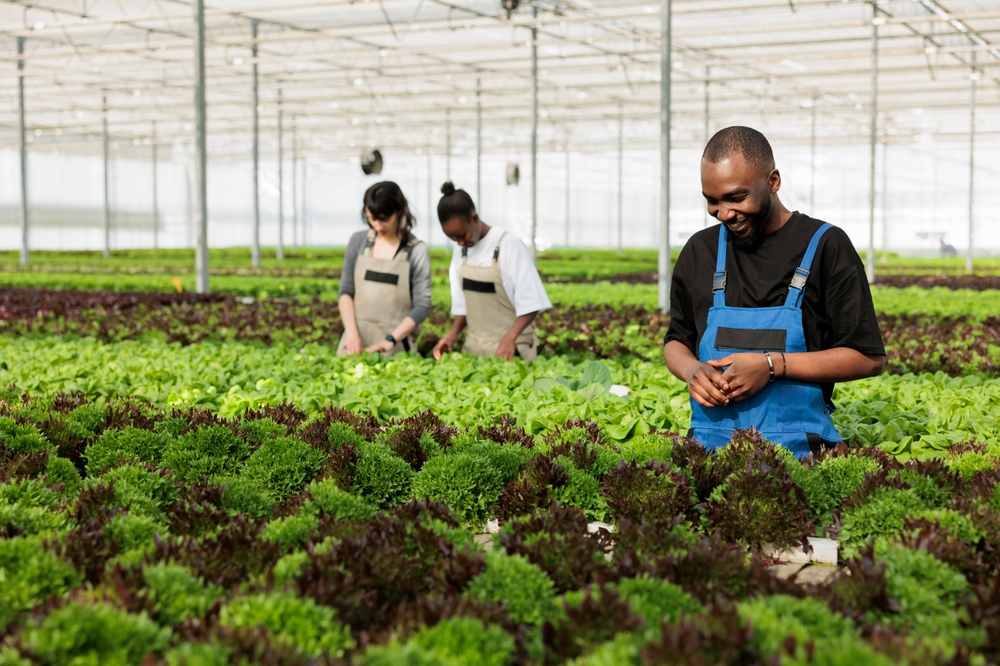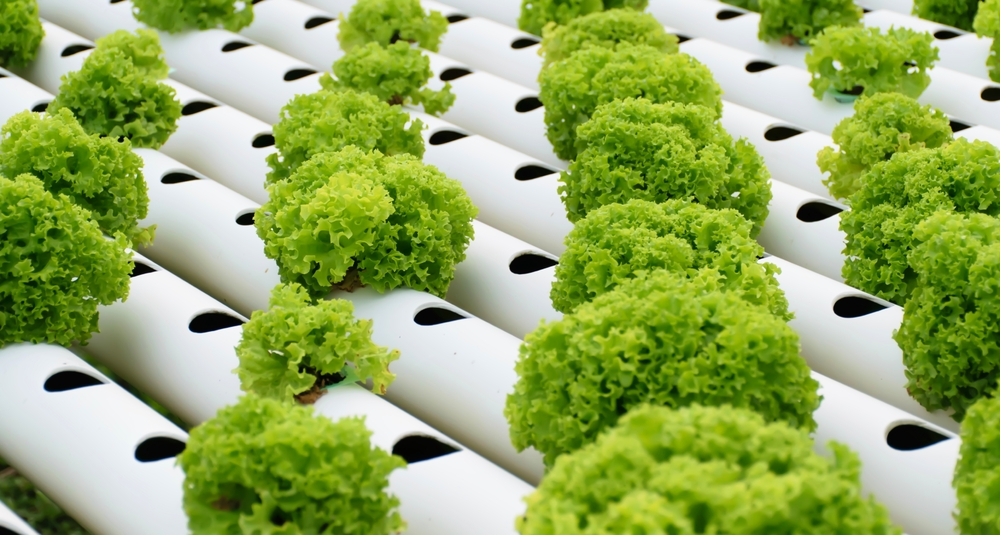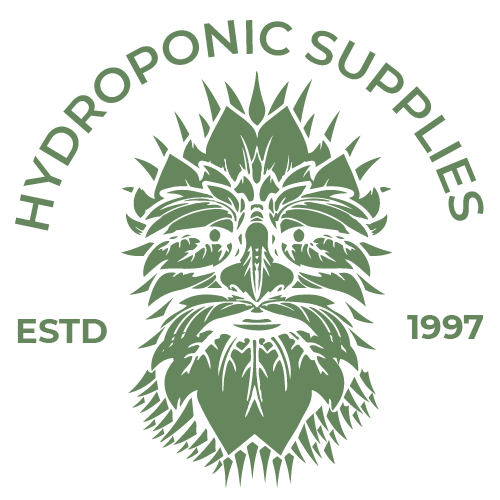
In modern agriculture, hydroponic nutrient farming has emerged as a revolutionary approach that combines cutting-edge technology with sustainable practices.
If you’ve found yourself intrigued by the buzz of “organic hydroponic food nutritious” surrounding hydroponic vegetables, you’re not alone.
The allure of quick-growing, controlled environment farms promises a transformative shift towards more sustainable and efficient food production. The availability of high-quality hydroponic nutrients Australia has led to remarkable advancements in urban farming and vertical gardening practices.
However, an important question looms:
- Are hydroponic vegetables truly nutritious and healthy?
- How do hydroponic nutrient vegetables measure up against their traditional soil-grown counterparts?
This article examines the world of hydroponic nutrients, revealing the science behind its benefits and helping you navigate the landscape of hydroponic greens.
Nutritional Value of Hydroponic Vegetables
The following question is a topic that has intrigued both scientists and food enthusiasts alike.
Are hydroponic food nutritious?
As the popularity of hydroponic nutrient farming continues to grow, so does the curiosity surrounding the benefits of these cultivation methods.
In the following discussion, we will explore advanced hydroponics nutrients foods, examining their nutritional value and examining how they measure up when it comes to promoting our well-being.
Hydroponic Nutrient Solution Profile

1. Organic Hydroponic Nutrient Source
Imagine a world where plants thrive without being tethered to the soil. Hydroponics makes this possible by providing plants with a rich hydroponic nutrient solution directly. Unlike traditional farming, where plants extract nutrients from the soil, hydroponics takes a more direct approach.
Hydroponics nutrients hinge on the delivery of a precisely balanced nutrient mix to the plants, nourishing them through their growth stages. This tailored approach of hydroponic nutrients to plant nutrition contributes to the remarkable speed at which general hydroponics nutrients plants grow, allowing for faster harvests and increased production of fresh vegetables.
2. Hydroponic Vegetables are Abundant in Vitamins and Minerals
The question of whether advanced hydroponics nutrients vegetables are as healthy as their soil-grown counterparts is multifaceted. It hinges on the meticulous management of hydroponic nutrients delivery during the growth cycle.
Devoted hydroponics growers diligently craft an optimal hydroponic nutrient environment for their plants, ensuring a harmonious balance that encourages rapid growth and optimal health. This careful attention results in general hydroponics nutrients vegetables that, when properly nurtured, boast nutritional profiles similar to plants grown in traditional soil.
In essence, if you’re sourcing your hydroponically grown vegetables from skilled and knowledgeable growers, you’re likely reaping the rewards of abundant vitamins and minerals.
3. Freshness Factor
The concept of freshness is pivotal in nutrition. The distance that food travels from farm to plate has a tangible impact on its nutrient content. Hydroponic nutrient farms, often strategically located near consumers, offer a unique advantage in preserving freshness.
Picture a scenario where the lettuce in your salad was plucked just yesterday from a hydroponic nutrient farm down the road. Contrast this with the traditional model of produce traversing thousands of miles before reaching your table.
Advanced hydroponics nutrients vegetables hold the upper hand in the battle for ultimate freshness, translating to enhanced nutritional value in your diet.
Light and Nutrient Impact | Artificial Light vs. Real Sunlight
1. Light Influence on Nutrient Content
The role of light in plant growth extends beyond photosynthesis. In hydroponic nutrient systems, the type of light a plant receives can have a profound impact on its nutritional composition. Recent studies have spotlighted the benefits of red-blue LED illumination over conventional fluorescent light sources.
This revelation underscores the significance of light quality in hydroponic nutrient setups. Vertical farms, where plants are cultivated on shelving systems, optimize artificial grow lights to fuel their crops.
In contrast, greenhouses seamlessly integrate natural sunlight and artificial light, harnessing the best of both worlds. By providing an ideal light spectrum, hydroponics nutrients growers craft an environment that maximizes plant health and nutrient synthesis.
2. Organic Hydroponic Nutrient Solutions – A Complex Choice
The lure of organic produce extends to advanced hydroponics nutrients as well. Some hydroponic nutrient enthusiasts opt for organic hydroponic nutrients solutions, raising questions about their impact on crop nutrition. Theoretically, plants fed with organic and conventional nutrient solutions should display no nutritional disparity.
However, the reality is more intricate. Properly nourishing plants with organic hydroponic nutrients solutions demands a deep understanding of the process. Unlike traditional soil-based systems, where organic fertilizers undergo pre-digestion by soil bacteria, hydroponic solutions lack this advantage.
They necessitate an additional step of nitrification to make nutrients accessible to plants, ultimately influencing the nutritional content of hydroponic nutrient crops.
3. Pathogen Protection and Water Filtration
Hydroponic nutrient systems offer an inherent advantage in pathogen protection. Soil, while rich in beneficial bacteria, also harbours harmful pathogens that can infiltrate plants. Hydroponic setups, on the other hand, can mitigate this risk through meticulous water filtration.
By carefully filtering the water used in their systems, general hydroponics nutrients growers ensure that their plants remain shielded from contaminants. This approach effectively enhances the safety and quality of hydroponic nutrient vegetables, underscoring the benefits of this modern farming methodology.
Nutrient Analysis

In modern agriculture and sustainable food production, several questions emerge regarding hydroponic nutrients and vegetables. These questions examine the organic hydroponic nutrients content, cultivation practices, and sensory experience of hydroponic produce.
- Are hydroponic vegetables less nutritious?
- Do hydroponics use chemicals?
- Are hydroponic vegetables pesticide free?
- Does hydroponic food taste different?
Let’s explore these inquiries and uncover the truths behind hydroponic nutrient farming methods. The concerns about the nutritional value, hydroponic powder nutrients, chemical usage, pesticide presence, and taste profile of hydroponic vegetables will be addressed here.
1. Hydroponic Vegetables ‘Equal’ Soil-Grown Vegetables
The mineral and organic hydroponic nutrients content of vegetables serves as a benchmark for their nutritional value. In this area, hydroponic nutrients vegetables proudly stand shoulder to shoulder with their soil-grown counterparts.
Well-designed hydroponic powder nutrients systems, meticulously engineered to supply essential nutrients, yield vegetables with virtually identical mineral compositions.
This consistency across growing methods underscores the viability of general hydroponics nutrients farming as a robust platform for producing nutritionally rich vegetables.
2. Chemical Usage in Hydroponics
The word ‘chemicals’ might raise eyebrows, but it’s essential to differentiate between harmful and essential chemicals. Water, a chemical compound, forms the bedrock of organic hydroponic nutrients systems. However, responsible advanced hydroponics nutrients practices prioritize the avoidance of harmful chemicals, such as pesticides.
General hydroponics nutrients farming proponents champion a controlled environment that naturally reduces exposure to pests. This holistic hydroponic powder nutrients approach not only fosters healthy plant growth but also contributes to a cleaner, more sustainable ecosystem.
3. Pesticide-Free Hydroponic Vegetables
The pesticide residues in our food supply have spurred interest in pesticide-free produce. Hydroponic greenhouses, operating within controlled environments, largely sidestep the need for aggressive chemical pesticides.
Unlike soil-grown crops, which might carry residual pesticides from historical practices, easiest hydroponic nutrients vegetables offer a refreshing alternative. By mitigating pesticide usage, advanced hydroponics nutrients champion a healthier and safer produce option.
Safety and Contamination Prevention

In modern agriculture, the cultivation methods employed to grow our food continue to evolve and diversify. Two pressing questions have emerged amidst this backdrop of innovation:
- Is hydroponics safer than soil?
- Is hydroponic water toxic?
Let’s navigate these important questions for a clear understanding of the safety implications of hydroponics nutrients and water management.
1. Controlled Environments Ensure Crop Safety
The controlled environment of hydroponic nutrient farms offers a compelling safety advantage. By cultivating plants indoors, organic hydroponic nutrients farmers can meticulously regulate crucial factors like temperature, lighting, and humidity.
This stringent control dramatically reduces the risk of contamination from external sources, safeguarding the integrity of crops.
The contrast with traditional outdoor soil-based farming, where plants are vulnerable to pollution, pests, and other contaminants, highlights the pivotal role of controlled environments in ensuring crop safety.
2. Managing Hydroponic Water Quality
The concern surrounding hydroponic nutrient water quality centres on nutrient retention. After plants have absorbed what they need from the water and hydroponic nutrient solution, residual nutrients remain. If improperly handled, these nutrients can pose environmental hazards.
Responsible general hydroponics nutrients growers embrace sustainable practices to manage nutrient-rich water. Instead of allowing hydroponic powder nutrients-laden water to enter natural systems, they filter, dilute, and recirculate it. This cycle of the easiest hydroponic nutrients minimizes ecological risks and underscores the commitment of hydroponics to sustainability.
FAQs
Does Hydroponics Cause Root Rot?
Root rot, a common affliction in hydroponic nutrient systems, underscores the significance of proper oxygenation and temperature control.
While inexperienced hydroponic powder nutrients growers might inadvertently encourage root rot, seasoned organic hydroponic nutrients farmers vigilantly monitor these factors.
By ensuring optimal conditions, the easiest hydroponic nutrients growers sidestep this challenge and maintain robust root systems that are essential for nutrient absorption and overall plant health.
Do Hydroponic Vegetables Need To Be Washed?
Although hydroponic nutrient vegetables generally boast lower contamination risk than soil-grown crops, washing remains a sensible precaution.
Even in the controlled environment of a greenhouse, factors like transportation and shelf handling can introduce contaminants.
A quick wash before consumption remains a simple yet effective step to safeguard your health and relish the full benefits of advanced hydroponics nutrients produce.
Hydroponic Farming | Where Health and Sustainability Meet
Exploring the world of hydroponic nutrients reveals a place where new ideas and taking care of our planet come together.
The demand for hydroponic nutrients Australia has been steadily increasing as more farmers embrace this efficient and sustainable approach to cultivating crops. Seasoned hydroponic growers understand that the success of their gardens heavily relies on sourcing the best hydroponic nutrients Australia.
Hydroponic nutrient farming is all about giving plants exactly what they need to grow – like a special recipe of nutrients and careful control of light. This clever way of farming also keeps plants safe from harmful germs.
In this special type of farming, we get super healthy veggies that can even compete with those grown in regular soil. But that’s not all – hydroponics nutrients also care a lot about nature. It wants to make sure we’re not harming our environment.
So, hydroponics invites us to be part of a future where our food is not only better for us but also better for the Earth. It promises us fresher, greener, and more nourishing food for the days to come. It’s like an exciting invitation to a world of healthier eating and taking care of our planet at the same time. Experience the peak of plant nourishment with the ‘Creative Grow Store’ selection of the finest hydroponic nutrients available in Australia.
